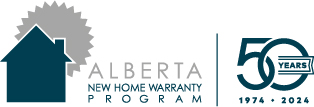When things just aren’t right, we’re here to help
If you’ve filed a claim to seek a resolution and you’re not satisfied with the outcome, your next first step is to contact your Claims Assessment and Technical Advisor who will review your concerns with your Claims Manager.
If you’re not satisfied with the outcome, there are other resolution options available to you.
In the case where a homeowner disagrees with a decision in the Claims Assessment Report and wishes to dispute it, it is recommended that you contact your Claims Assessor first who will review your claim with the Claims Assessment Manager.
If you’re still unsatisfied with the decision you may contact our Complaints Officer at complaintsofficer@nhwicc.com who will complete a review of the homeowner’s concerns with the assessment. This may involve additional contact with the homeowner and/or various other parties involved in the claim assessment. A final decision will be communicated to the homeowner including options if they remain dissatisfied with the outcome.
If you’re not satisfied with the New Home Warranty Insurance (Canada) Corporation’s final position, you may contact the General Insurance Ombudservice (GIO) – information provided in the tab above.
If you wish to pursue the matter further, you may contact the General Insurance OmbudService (GIO), which helps resolve differences between insurance companies and their customers, for home, automobile and business insurance issues in Canada. The GIO is an independent dispute resolution service and there is no charge for their services. The GIO will determine if your issue falls within their mandate. You can access the GIO by phone, mail, email, fax or through their website.
The GIO does not provide any type of compensation and its services are non-binding.
You may reach the General Insurance OmbudService at:
General Insurance OmbudService
2727 Courtice Road, P.O. Box 98009
Courtice, ON L1E 3A0
1.877.225.0446
www.giocanada.org
Additional options include a Legislated Dispute Resolution Process, as explained in the above tab, in the event a dispute arises under the Home Warranty Insurance Policy between you and NHWICC that cannot be resolved by information negotiation within a reasonable time period.
The New Home Buyer Protection Act refers to a legislated dispute resolution process outlined in the Alberta Insurance Act Section 519. These are not the only considerations when reviewing the legislated dispute resolution process, but they provide enough information for basic understanding. NHWICC is not in a position to interpret the Act or its regulations. You may wish to seek legal counsel for further clarification.
The legislated dispute resolution process will be limited to matters of warranty insurance.
A quick, confidential process that’s highly effective in resolving issues and preserving business relationships, mediation brings participants together for a discussion facilitated by an impartial moderator.
Mediation is voluntary and helps bring the participants to a mutually acceptable agreement, often within a very short timeframe. Mediation services apply only to contractual issues between individual homeowners and their builder, outside of your warranty policy itself.
The Program has members of staff trained to mediate disputes. Alternatively, we may use mediation specialists from organizations like the Alberta Arbitration & Mediation Society.
- Voluntary – Both parties agree to participate
- Flexible – Participants explore a range of potential solutions
- Solution-oriented – Participation shows that both parties are motivated to resolve the issues
- Empowering – It is the participants, not the mediator, who create solutions and control the outcome
- Convenient – Mediation works with participants’ schedules – there’s no prescribed “court date”
- Confidential – the process and its outcomes are private and privileged
Login to the Homeowner Portal and select “Mediation”.
Our mediation services are free to homeowners with active policies.
As long as all participants agree, mediation can occur at any point during or after your warranty relationship.
We will arrange external mediators through the Alternative Dispute Resolution Institution of Canada (ADR Canada).
If mediation is unsuccessful in bringing the parties to a mutually acceptable agreement, alternative dispute resolution processes are available.
As mediation works best in a neutral environment, we usually facilitate mediation sessions at our office. With COVID-19, our staff are currently working remotely to maintain physical distancing and we have alternate arrangements in place to facilitate mediation.
Mediation is a discussion. Be prepared to discuss issues and potential solutions with an open mind. You may bring forward back-up documentation, but keep in mind that the goal is not to “present your case and prove your point” – it’s to arrive at a solution that works for both parties.
- The mediator explains his/her role as a facilitator and goes over the rules of mediation
- All participants present their issues and interests for resolution
- All participants share and discuss potential solutions
- When participants agree upon a solution, they may elect to have the mediator officially document the resolution either during or immediately after the mediation
Yes, mediation is most effective when all participants observe the following rules and guidelines:
- All participants must consent to the mediation process and have the authority to settle the dispute
- Participants must be respectful
- All statements made during mediation are privileged; neither the mediator nor his/her notes can be subpoenaed in subsequent proceedings
- Participants agree that all discussions are “without prejudice,” meaning all offers and concessions are confidential and cannot be cited in any subsequent proceedings


Connect